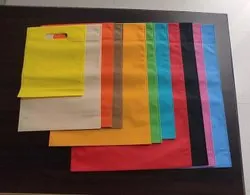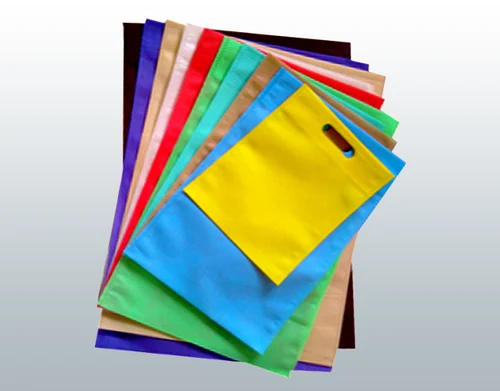White Non-Woven Fabrics Shopping Bags, Capacity: 10kg
₹10.0
Product Specification
| Material | Non-Woven Fabrics |
| Color | White |
| Pattern | Traditional |
| Size | Castomize |
| Usage/Application | Shopping |
| Capacity | 10KG. |
| Handle Type | D Cut |
| Minimum Order Quantity | 30 Bag |
Product Description
- Description
- Additional information
- Reviews (0)
- Q & A
- Sustainability Remark
- More Offers
- Store Policies
- Inquiries
| Color | White |
|---|---|
| Material | Non-Woven |
You must be logged in to post a review.
Q & A
Eco-friendly carry bags, also known as reusable or sustainable bags, are designed to have a lower environmental impact compared to single-use plastic bags. Here are some aspects of their sustainability:
Material: Eco-friendly carry bags are typically made from sustainable materials such as organic cotton, jute, hemp, or recycled materials like PET bottles or reclaimed fabric. These materials are renewable, biodegradable, or have a lower carbon footprint than conventional plastics.
Reusability: One of the key features of eco-friendly carry bags is their reusability. Unlike single-use plastic bags, which are discarded after a single use, these bags are designed to be used multiple times. By encouraging reuse, they reduce the demand for disposable bags and help minimize waste.
Durability: Eco-friendly bags are usually sturdier and more durable than thin plastic bags. Their strength allows them to withstand heavier loads and resist wear and tear over time. Increased durability contributes to their overall sustainability by prolonging their lifespan.
Reduction of waste: Since eco-friendly carry bags can be reused many times, they help reduce the amount of waste generated from single-use bags. By opting for a reusable bag instead of a disposable one, individuals can significantly decrease their contribution to landfills and marine pollution.
Resource consumption: The production of eco-friendly carry bags often requires fewer resources compared to the production of conventional plastic bags. Sustainable materials like cotton or jute require less energy, water, and chemicals during cultivation and manufacturing processes.
Disposal: While eco-friendly bags are often biodegradable or compostable, their sustainable disposal requires proper infrastructure. It's important to dispose of these bags correctly to ensure they can break down and return to the environment without causing harm.
Consumer behavior: The sustainability of eco-friendly carry bags also depends on consumer behavior. If people consistently reuse these bags and make them a part of their daily routines, their environmental benefits are maximized. Encouraging mindful consumption and promoting the use of reusable bags can contribute to a more sustainable lifestyle.
Overall, eco-friendly carry bags offer a more sustainable alternative to single-use plastic bags by reducing waste, resource consumption, and environmental impact. However, it's important to note that the sustainability of these bags also depends on factors like material sourcing, manufacturing processes, and end-of-life disposal.
General Inquiries
There are no inquiries yet.





Reviews
There are no reviews yet.